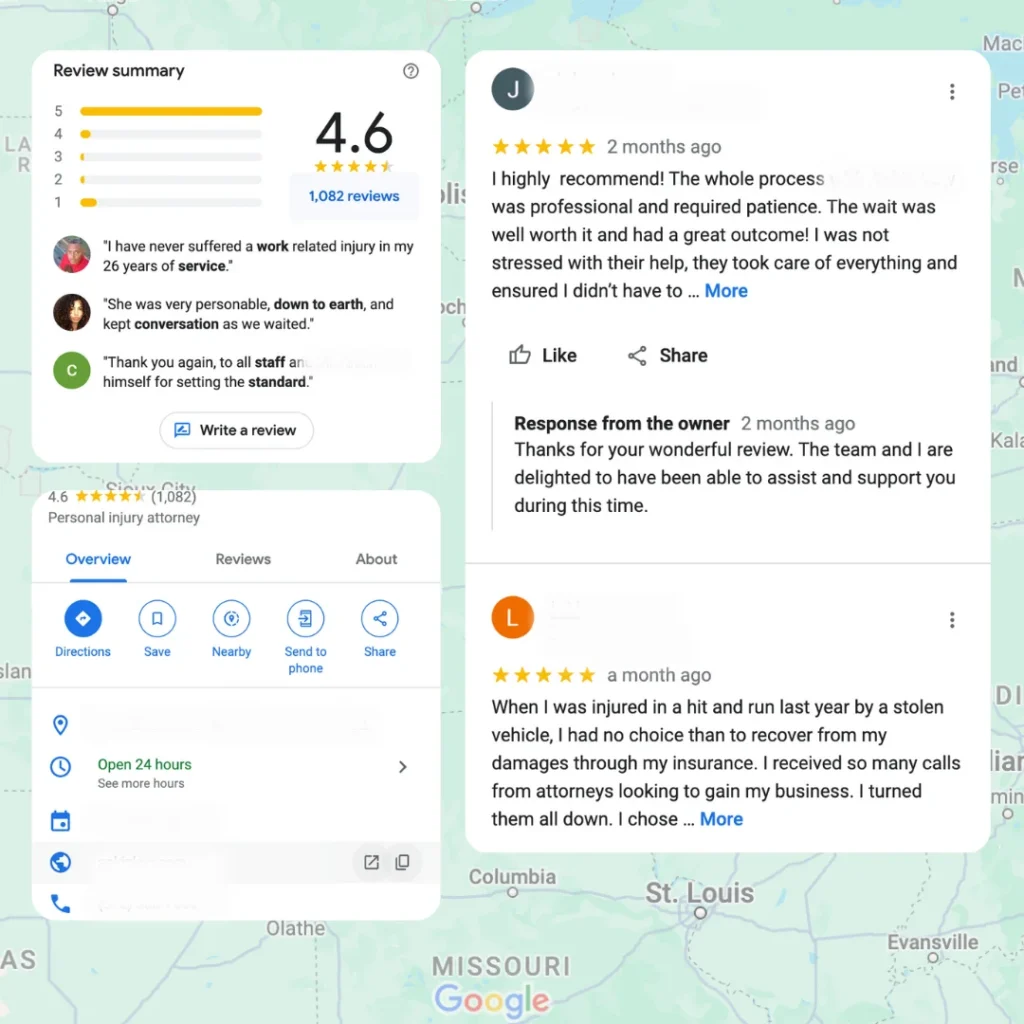Home » Law Firm SEO: Key Tactics for Lawyer Keyword Research
Estimated reading time: 5 minutes
Law firms face unique challenges and opportunities in digital marketing, specifically in Search Engine Optimization (SEO). Keyword research is essential for SEO and can improve a law firm’s online presence and client acquisition. This comprehensive guide will show you how to research relevant keywords for lawyers. It will also provide insights and strategies to attract the right audience effectively.
Understanding the Importance of Keyword Research
Before diving into the mechanics of keyword research, it’s essential to understand its significance. Keywords are the foundation of SEO. They are the terms and phrases that potential clients type into search engines when looking for legal services.
Law firms can improve their website and content by finding and focusing on the right keywords. This will help potential clients find them in relevant searches and see them.
Why Keyword Research is Crucial for Law Firms
- Client Targeting: Law firms can tailor their content to meet these needs by understanding what potential clients seek.
- Competitive Edge: Effective keyword research can give law firms an edge by targeting underserved or particular niches.
- Marketing ROI: Law practices can invest in keywords that reflect their services and expertise accurately. This can yield a higher return on investment (ROI) for their marketing efforts.
Step-by-Step Guide to Keyword Research for Lawyers
Step 1: Identify Your Specialty Areas
Start by listing the areas of law your firm specializes in. This could include “personal injury,” “family law,” “criminal defense,” or “immigration law.” This list of keywords is essential for your research. It ensures that the terms you look into later relate to your services.
Numerous tools are available for keyword research. Some of the most popular include Google Keyword Planner, SEMrush, Ahrefs, and Moz. These tools provide data on keyword volume, competition, and variations of keywords.
Step 3: Brainstorm Initial Keyword Ideas
Based on your specific legal area, brainstorm potential keywords.
If you are a personal injury lawyer, your keywords could include:
- “personal injury lawyer,“
- “accident attorney,” or
- “slip and fall lawyer.”
Think about how your potential clients might search for your services.
Step 4: Explore Long-Tail Keywords
Long-tail keywords are longer, more specific phrases with less competition and can attract more qualified leads. Instead of “divorce lawyer,” a more specific option could be “divorce lawyer for wealthy people in Miami.” These detailed phrases align closely with specific client queries.

Step 5: Analyze Search Intent
Understanding the intent behind searches is crucial.
Keywords can have different intents:
- Informational (seeking information),
- Navigational (looking for a specific website or page),
- Transactional (ready to procure services), or
- Commercial investigation (comparing services or providers).
Tailor your content to match the intent of your targeted keywords.
Step 6: Study the Competition
Analyze what keywords your competitors are ranking for. Tools like SEMrush offer competitive research features that let you see which keywords drive traffic to your competitors’ sites. Use this information to identify gaps in their strategies or areas where you can improve.
Step 7: Consider Local SEO
For many law firms, local clients are the backbone of their business. Including location-specific keywords like “estate planning attorney in Austin” can be beneficial. Local SEO involves optimizing your Google My Business listing and ensuring consistency in your online NAP information. NAP means Name, Address, and Phone Number.

Step 8: Refine and Expand Your Keyword List
Expand your list by identifying variations and related keywords using your research tools. Look for synonyms, regional terms, and phrases that reflect your unique value propositions.
Step 9: Prioritize Keywords
Not all keywords are equal. Prioritize based on relevance, search volume, competition, and alignment with your firm’s services. A balance between high-volume terms and niche, low-competition long-tail keywords.
Step 10: Integrate Keywords into Your Website
Once you have your prioritized list, integrate these keywords naturally into your website. This includes page titles, meta descriptions, header tags, and content. Remember, the goal is to be informative and natural – stuffing pages with keywords can harm your SEO efforts.
Best Practices for Keyword Research
- Stay Updated: Keyword popularity can change over time. Regularly update your research to reflect trends and legal issues.
- User-Friendly Content: While keywords are important, always prioritize creating valuable, user-friendly content that genuinely helps your audience.
- Track Performance: Monitor the performance of targeted keywords with Google Analytics and adjust strategy accordingly.
Common Mistakes to Avoid
- Overlooking Local Keywords: For many law firms, local clientele is key. Neglecting local SEO and geographic-specific keywords can result in missed opportunities.
- Ignoring long-tail keywords means missing out on potential traffic, even if their search volumes are lower.
- Keyword Stuffing: Overusing keywords can lead to penalties from search engines. Strive for a natural integration of keywords into your content.
Conclusion
Keyword research is essential for a law firm’s online presence and getting new clients. It is an ongoing process.
Law firms can improve their visibility and attract the right audience by doing keyword research for the legal industry. This, in turn, leads to the growth of their practice. Remember, the right keywords can be the key to unlocking your firm’s potential.
Curious about how you can boost your Law Firm’s search ranking? Read our guides on:
At Partner Digital Agency, we specialize in boosting the online visibility of your law firm through effective SEO strategies. We understand your industry’s unique challenges and opportunities and will help you stand out in search engine rankings.
We will help you optimize your website’s content, improve site speed, and enhance local SEO. These improvements can drive more organic traffic to your site, leading to more high-quality leads. Take the first step towards improving your online presence by scheduling a free website audit today.
Let us analyze your website’s performance and provide you with actionable insights to help your law firm thrive online. Schedule your Free SEO Audit here.